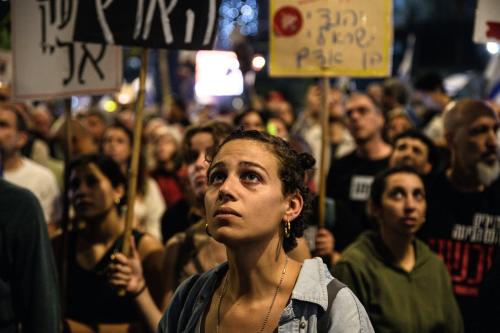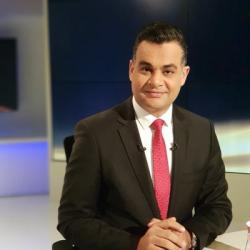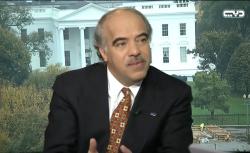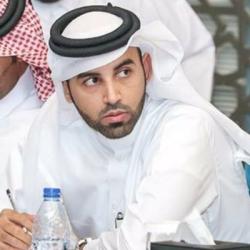

1:00 am AST - 2:30 am AST
Past Event
Content from the Brookings Doha Center is now archived. In September 2021, after 14 years of impactful partnership, Brookings and the Brookings Doha Center announced that they were ending their affiliation. The Brookings Doha Center is now the Middle East Council on Global Affairs, a separate public policy institution based in Qatar.
The Brookings Doha Center (BDC) and the Al Jazeera Center for Studies held a panel discussion on February 2nd, 2020 about the role of think tanks in times of crisis, as part of a joint annual series on “Why Think Tanks Matter.” The panelists considered how think tanks can adjust their roles in times of crisis, ensure their work reaches the right audiences, and communicate their ideas more effectively to these audiences. The panel consisted of a group of distinguished scholars and experts, including: Nader Kabbani, director of research at the BDC; Nayef Bin Nahar Alshammari, director of the Ibn Khaldon Center for Humanities and Social Sciences at Qatar University; and Mohammed Cherkaoui, writer at the Al Jazeera Center and professor of conflict resolution at George Mason University. The panel was moderated by Ahmed Taha, presenter for Al Jazeera Mubashar. Members of Doha’s diplomatic, academic, and media communities attended the event.
Nader Kabbani began the discussion by reflecting on the role of think tanks. He argued that think tanks connect academics and decision-makers and, as such, must convey relevant information in a way that can be easily understood. During crises, for instance, time is limited, and so analysis should be concise and applicable to the situation. Though many think tanks produce analysis according to predetermined schedules, they should be flexible enough to tackle events as they arise. They should also develop strong ties with decision-makers, laying the groundwork for cooperation during times of crisis, as well as consider how their policy recommendations can be applied and to what effect. Kabbani noted the positive impact of social media on research, stating that institutions can publish more rapidly and interact with the public using new online platforms. He also outlined the challenges posed by social media, such as the rapid spread of false news; by the time think tanks publish corrective analyses, new falsehoods are already circulating. Along these lines, he argued that, while think tanks need media specialists who can react quickly to this influx of information, but they should not interact with every piece of news that circulates and should instead step back and wait for information to develop.
Mohammed Cherkaoui continued the discussion by saying that we live in a tumultuous age, in which crises are taking place faster than ever before. He argued that, during a time when countries across the world are following what happens in the region so closely, each with their own calculations, think tanks can play a crucial role by providing in-depth views of different issues and guiding policy decisions. Cherkaoui also said that, even though institutions are put under pressure to present information as quickly as possible, there is a difference between research and social media content. He added that think tanks are not primarily concerned with circulating news, but rather with analyzing events in order to provide unique points of view. They develop analyses directed toward decision-makers, academics, and the general public, creating knowledge that enters the public sphere and becomes a part of the general discourse. In addition, he noted that there are fewer think tanks in the Arab world as compared to the West.
Nayef Bin Nahar Alshammari pushed back against Cherkaoui’s last observation, saying that it would be unfair to compare the Arab world to the West and arguing that the former has actually made great strides in developing its think tank sector. He touched on the fact that there are over 20 think tanks in Qatar alone, as well as influential think tanks in countries like Tunisia, Morocco, and Jordan that guide decision-making and shape public opinion. Alshammari also challenged the claim that think tanks in the democratic world are more trustworthy, noting that American and European institutions are subject to many financial constraints, and thereby seek funding from external parties, which comes with conditions. Lastly, he discussed the role of think tanks during crises, saying that it is important to consider factors such as the type of event, whether a think tank is working in a democratic or authoritarian environment, and who is funding the research. He recommended that institutions work in anticipation of crises, in order to produce content that will be applicable during the actual event. He highlighted how think tanks play a different role during crises than advisors; rather than one person providing a recommendation, think tanks bring together research teams to analyze a topic from different perspectives and provide a comprehensive point of view. Alshammari concluded by stating that the Ibn Khaldon Center coordinates more with the public than with decision-makers, contending that shaping public opinion can subsequently inform politicians and their decisions.
The subsequent question and answer session touched on a range of issues, including think tank funding, outreach, and activities, as well as the role of governments in providing data. Alshammari spoke about the influence of funders on research processes, asserting that research centers can be linked to governments without this relationship determining what they produce. Cherkaoui seconded this point, saying that financial backers do not necessarily impose their own ideas upon think tank researchers. In response to questions about how think tanks can reach out more effectively to decision-makers, Alshammari advised research centers to present relevant, accessible, and brief analyses. Separately, Kabbani spoke to the question of whether think tanks in the Arab world can foresee future events. He said that, while some think tanks can provide future projections by employing specific methodologies, it is not only important to predict events but also to develop plans for addressing them. Lastly, the panelists discussed the difficulty in accessing data the the Arab world, with Alshammari and Cherkaoui both noting that government institutions in the region are reluctant to release certain types of information.





Marvin Kalb
May 6, 2024
2024
The Brookings Institution, Washington DC
10:00 am - 11:30 am EDT

Constanze Stelzenmüller, Fred Dews
May 3, 2024